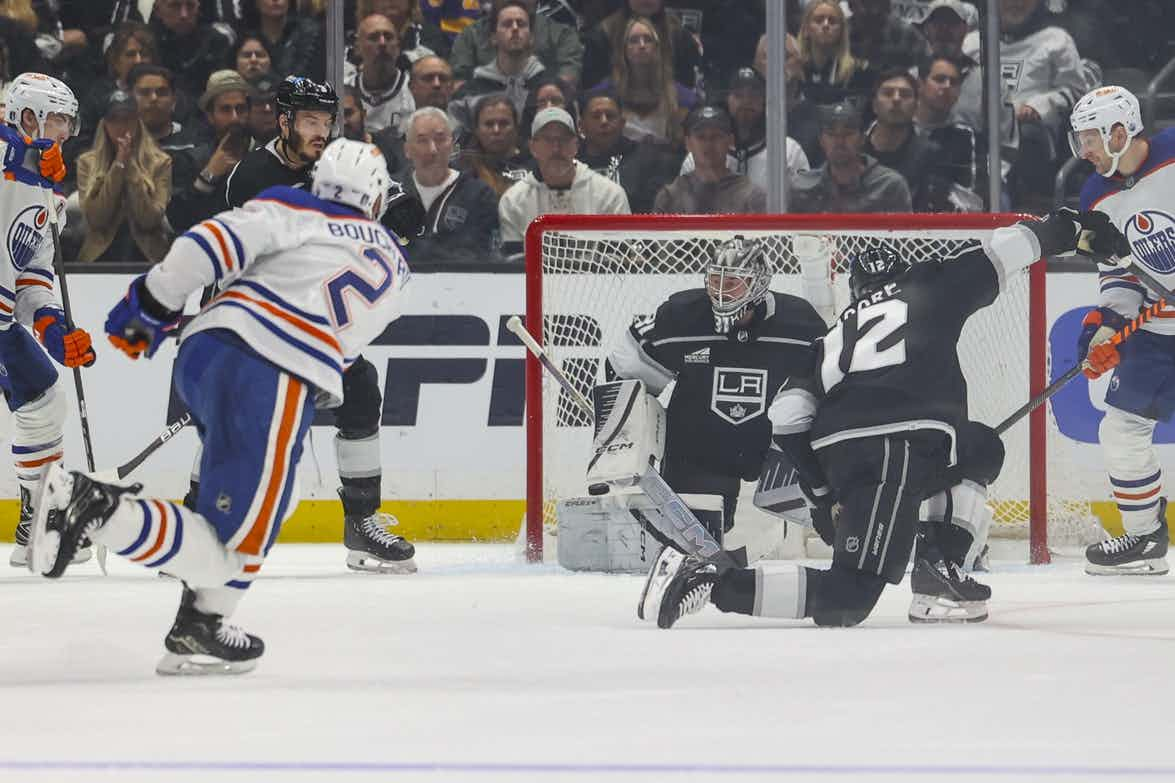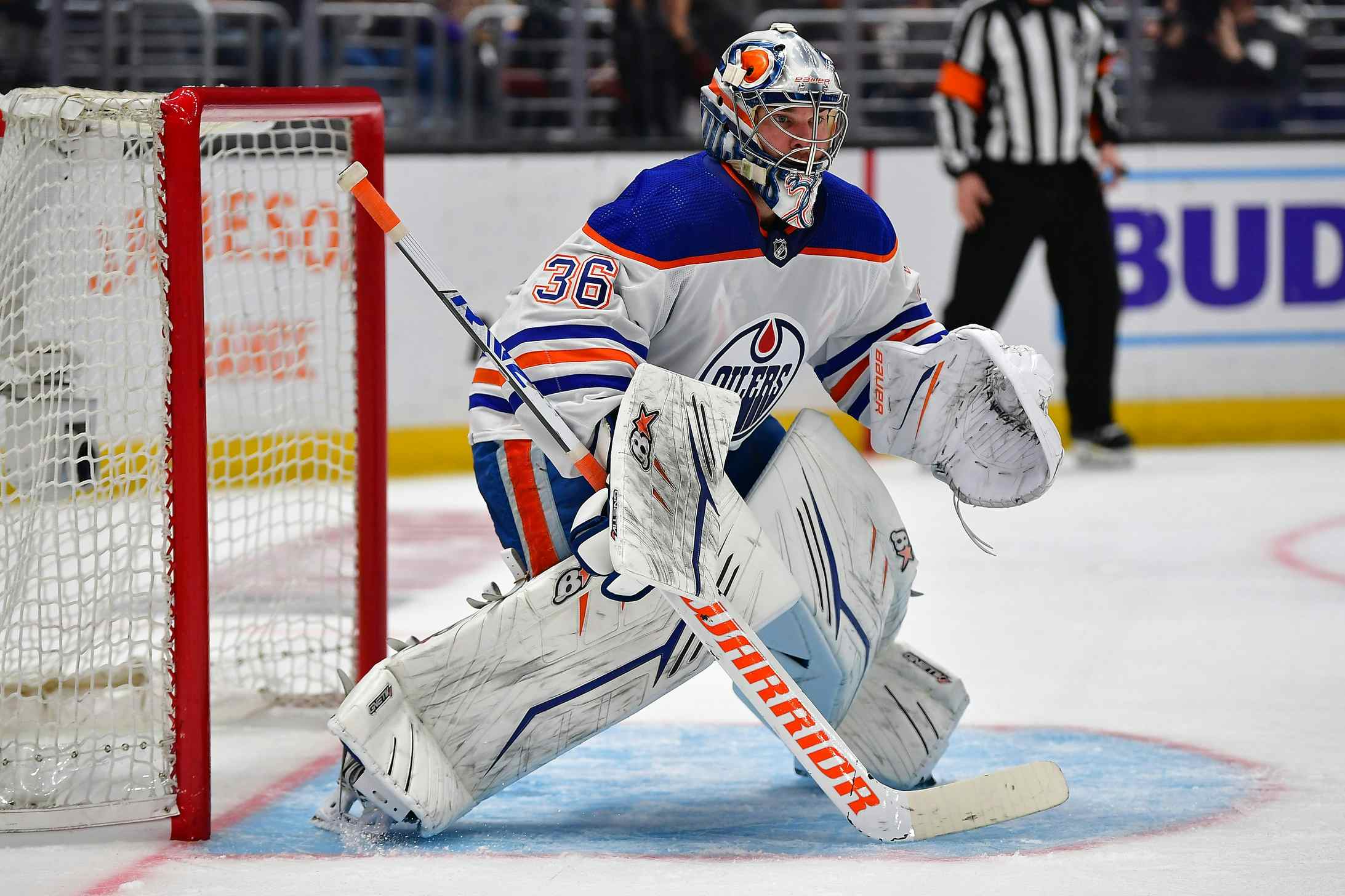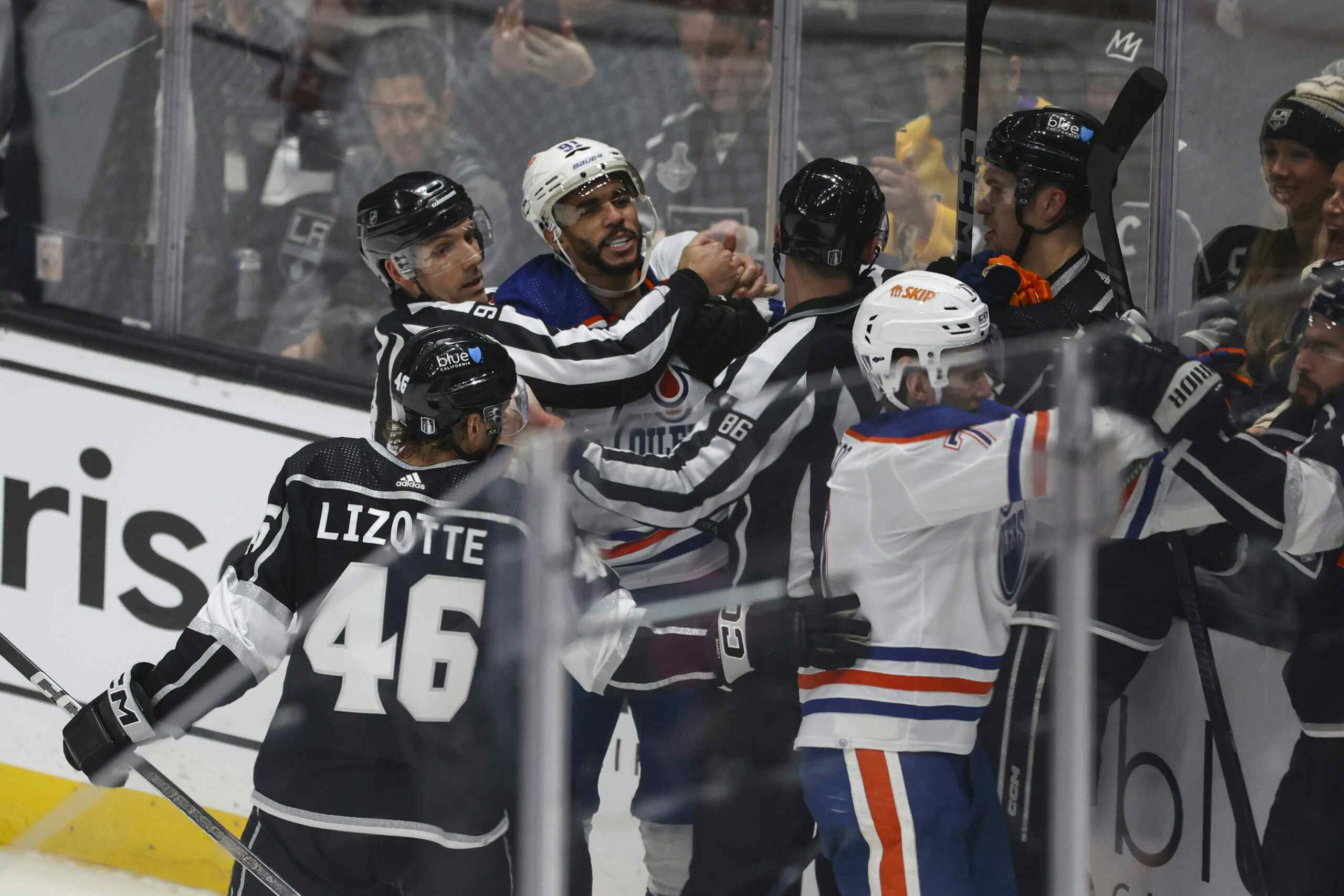AHL Prospect Rankings: #15 – Colin McDonald

Colin McDonald was a bit of a reach for the Oilers, who drafted him 51st overall in 2003 despite the fact that most publicly available stuff (ISS/CSB Rankings, THN, etc). The Oilers publicly stated a need to get bigger prior to the draft, and through the first 100 picks, the smallest player they selected was 6’1″, 195lb Marc Pouliot (and they bypassed the much smaller Zach Parise to make that selection). The other players in this group were J-F Jacques, Zach Stortini, and Mikhail Zhukov. It’s perhaps unsurprising that the 2003 draft was one of the weakest of the Lowe/Prendergast era (by my estimation, only the 2004 draft is close).
Despite the stretch to select McDonald, he came in looking like a player. His father, Gerry McDonald, was a big defenseman who improbably made the NHL despite playing his amateur years in Division Three college hockey. MacDonald ended up playing only eight NHL games (for the Hartford Whalers) but posted solid numbers over four AHL seasons before retiring from professional hockey.
The younger McDonald was the top scorer and league MVP of the Eastern Junior Hockey League in his draft year. There are always question marks about players who excel in less-heralded leagues, but McDonald didn’t suffer from poor coaching at any rate. Gary Dineen, a cup-of-coffee NHL’er and two-time Olympian with Team Canada had a long history of developing American hockey players (the most notable being Bill Guerin). In 1971-72, Dineen went from being the number two centre (behind Butch Goring) of the league-champion Springfield Kings to the team’s head coach. At 27, he was the youngest head coach in AHL history. He guided the team (which included current Falcons’ GM Bruce Landon, future Islanders goaltender Billy Smith, and the unfortunate Bill Mikkelson) to a record one game over .500 before being replaced by Jerry Toppazzini the following year. Dineen would end up spending the next thirty-five years teaching junior hockey in the Springfield area, sending more than 300 players to various college programs before his death in April of 2006.
McDonald was one of those players. When the Oilers drafted him, he’d already committed to attend Providence College. Guy Flaming did an exceptional interview with McDonald, where McDonald described himself, his plans, and what it was like to be drafted by Edmonton. In Flaming’s words: “He’s confident in his abilities, sure of his drive and certain of his future success. Colin McDonald is able to be all of those things without sounding the least bit cocky.”
Colin McDonald graduated from Providence with a degree in management, but the college likely wasn’t the best fit for McDonald’s hockey aspirations. Paul Pooley had been the coach for nine seasons at Providence when McDonald signed on there, and coached future NHL’ers in Fernando Pisani, Nolan Schaefer and Hal Gill (along with the less impressive Joe Hulbig), but things quickly went sideways. The team finished two games above .500 in 2003-04, but went 12-21-4 in 2004-05, resulting in the departure of Pooley and the hiring of former NHL assistant (and Portland Pirates head) coach Tim Army. Army faired little better; finishing one game above .500 in his first season, and going 10-23-3 in 2006-07, both his and McDonald’s final season at Providence.
Providence, in addition to posting a poor record, were horrendous at scoring goals. The team managed between 76 and 106 goals per season during McDonald’s time there, and thus McDonald posted woeful scoring numbers. In 2005-06 he posted a career high 28 points on a team that scored 105 goals, meaning he figured in on nearly 27% of the team’s offense. In his final season (2006-07) McDonald scored only 17 points (13 of them goals) on a team that managed only 76 goals; that meant that he was scoring 17.1% of the team’s total goals. For comparison’s sake, the current goal leader in the NHL (Jeff Carter) has scored 20.5% of his team’s goals; in other words, there was a very real question as to whether McDonald was a poor offensive player, or a good offensive player on a very poor team.
Last season was McDonald’s first in the AHL, and it was a train-wreck. His -21 rating was second-worst on the team (behind only Tim Sestito’s -25) and he scored 23 points in 73 games (with only one point in the final two months of the season). Now it seems likely that he was playing tough opponenets, but no offense and a brutal +/- at the AHL level cannot be excused for an NHL prospect. He had some significant distance to make up (by way of contrast, noted NHL scorer Patrick Thoreson scored 26 points and went +6 in only 29 games for the same team), and this season figured to be pivotal for him.
It’s been pretty much a disaster. In 43 games, McDonald has managed 8 points and a -6 rating (again, for contrast, noted scorer Liam Reddox has 9 points in 14 games on the same team). He was even sent down to the ECHL at one point. We can be fairly confident that McDonald’s playing tough opposition, but it’s tough AHL opposition. McDonald’s 24 years old, and while he has great size and a very good shot, he’s being outscored at the AHL level while producing negligible offense. He’s in the final year of his contract, and I very much doubt that he gets another one.
NHL Contract Status: 663K for 2008-09, pending RFA
AHL Performance Compares To: Travis Moen
Career Projection: Minor-leaguer
Recent articles from Jonathan Willis





